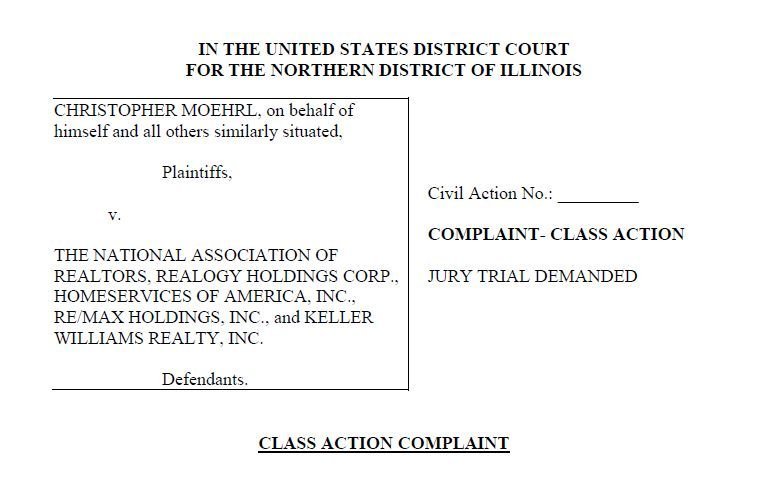Future FinTech Class Action Lawsuit: Understanding Your Rights
Future FinTech Class Action Lawsuit: Understanding Your Rights
Blog Article
Debunking Class Activity Lawsuits: A Closer Check Out Legal Proceedings
Course activity legal actions can be intricate and intimidating, often shrouded in a shroud of secret for those strange with the lawful proceedings involved. Nonetheless, getting a deeper understanding of these claims is important, as they act as a powerful device for individuals to look for justice and hold companies responsible. In this conversation, we will demystify class activity suits, taking a more detailed consider the numerous facets of the legal procedures. From understanding the criteria for class activity eligibility to the function of class representatives, and from the process of class accreditation to the resolution of these suits, we will certainly unwind the complexities and clarified the inner workings of this legal mechanism. So, allow's dive into the globe of course activity suits and uncover the ins and outs that exist below the surface area.
Understanding Class Action Lawsuits
Recognizing Class Activity Suit needs a comprehensive evaluation of the legal process associated with collective lawsuits. Class activity claims are a type of lawsuit where a group of people with similar cases or grievances sign up with together to launch a legal action against a common defendant. This type of litigation allows individuals with limited sources to jointly seek justice, as it incorporates the stamina of multiple private insurance claims into a single lawsuit.
The process begins with the recognition of a lead plaintiff or course rep who submits the preliminary grievance on behalf of the whole class. The court then establishes whether the case satisfies the requirements for class certification, that include commonness, numerosity, typicality, and competence of representation. If certified, the court notifies potential course members, providing an opportunity to opt-out if they want to pursue their claims separately.
Once the class is accredited, the litigation continues through different stages, consisting of exploration, motion practice, and, if required, trial. The outcome of the lawsuit can cause a settlement or a judgment, which is binding on all course members unless they choose to opt-out. Class action lawsuits can include a variety of legal concerns, such as consumer security, safety and securities fraudulence, work discrimination, and environmental damage.
Understanding the nuances of course activity suits is critical for both defendants and complainants associated with cumulative litigation. It needs a comprehensive understanding of the lawful requirements for accreditation, the legal rights and commitments of class participants, and the potential advantages and threats associated with protecting or seeking against course activity insurance claims.
Identifying Course Action Qualification
To identify whether a lawsuit qualifies as a class activity suit, details standards have to be met. These criteria are made to make sure that the instance can appropriately represent the passions of a large team of people that have actually suffered similar injury or have actually been impacted by the very same concern. The vital factor in recognizing class action qualification is the visibility of an usual inquiry or issue that impacts all possible class participants.
First of all, a course activity claim calls for numerosity, which suggests there need to be a significant number of possible course members entailed. This guarantees that a course action is a reliable means to deal with the claims of a huge team of people, instead of having everyone file a specific legal action.
Second of all, there need to be commonality amongst the cases of the potential class participants. This suggests that there must be a typical question of legislation or truth that is main to the situation. If each prospective class participant's claim is unassociated and special to the others, a class action might not be proper.

The Duty of Course Representatives
Course agents play an essential function in class activity lawsuits by representing the passions of the whole course. These individuals are selected from within the course to function as the general public face of the suit and are in charge of choosing in support of all course members. The role of class reps entails numerous obligations and obligations throughout the lawful process.
Among the main duties of class reps is to offer information and help to their fellow course participants. They act as a point of call and communication between the course participants and the lawyers representing them. This includes maintaining the class members educated around important updates, addressing their inquiries, and attending to any problems they might have.
Course agents likewise have the obligation to actively participate in the litigation procedure (Future FinTech class action lawsuit). This involves working carefully with the lawyers to develop lawful strategies, gathering evidence, and providing testament if required. They must be proactively associated with all aspects of the situation to guarantee that the finest passions of the entire course are represented
Additionally, course reps are accountable for accepting negotiations or various other resolutions reached in the suit. They must thoroughly review the terms of the settlement and decide that remains in the ideal passion of the whole class. This decision-making process Archer-Daniels-Midland class action lawsuit needs careful factor to consider and examination with the class participants.
The Refine of Course Qualification
The procedure of certifying a class in a class activity lawsuit entails a comprehensive evaluation of details standards to identify if the case satisfies the necessary needs for class accreditation. Course certification is a critical step in the litigation procedure as it figures out whether a claim can continue as a class activity, permitting a big group of individuals with similar claims to be stood for collectively by one or a few individuals.
To get class qualification, the plaintiff has to demonstrate that the recommended course satisfies particular requirements. These requirements generally consist of numerosity, commonality, typicality, and competence of depiction. Numerosity requires that the class is so large that joinder of all members is not practical. Commonality necessitates that there are inquiries of legislation or reality typical to the course participants. Typicality requires that the cases or defenses of the course representatives are common of those of the course. Adequacy of representation ensures that the course agents will relatively and appropriately secure the passions of the course.
If the suggested class fulfills the needed requirements,The court will scrutinize these requirements and the plaintiff's evidence to figure out. The court may likewise consider other factors, such as whether a course action is the premium technique to fix the disagreement and whether the course is sufficiently natural.

When the court grants class qualification, the legal action can continue as a class activity, enabling the complainants to jointly look for alleviation and potentially obtain a judgment or negotiation that benefits the entire course.
Dealing With Course Action Claims
Once course qualification has been provided, the following step in resolving a course action lawsuit is to browse the process of litigation or settlement arrangements. Litigation refers to the lawful procedures in court, where the plaintiff's lawyer presents evidence and debates to support their claims, and the defendant's lawyer counters with their very own proof and disagreements. This process can entail different phases, such as pretrial motions, exploration, and trial.
On the various other hand, negotiation arrangements include conversations between the celebrations to reach a mutually appropriate resolution without going to trial. Settlement supplies might be made at any stage of the litigation process, and if both events concur, a settlement contract is gotten to.
Verdict
In verdict, course activity lawsuits play a crucial function in giving justice and compensation to big groups of people who have been harmed by the very same entity. By appointing and licensing a class class reps, the lawful process comes to be a lot more accessible and effective for the complainants. Solving these legal actions can be a complex and prolonged process, but it is crucial in holding corporations liable for their actions and guaranteeing fair end results for all affected parties.
From comprehending the criteria for class activity qualification to the duty of course agents, and from the procedure of class certification to the resolution of these suits, we will unravel the complexities and shed light on the internal functions of this lawful system. The essential variable in determining course activity eligibility is the presence of a typical question or problem that affects all prospective class members.
If each possible class participant's insurance claim is special and unassociated to the others, a course activity may not be proper.
Course reps play a critical role in course activity claims by standing for the rate of interests of the entire class.Once class certification has actually been approved, the following action in fixing a course action suit is to navigate the process of litigation or negotiation negotiations.
Report this page